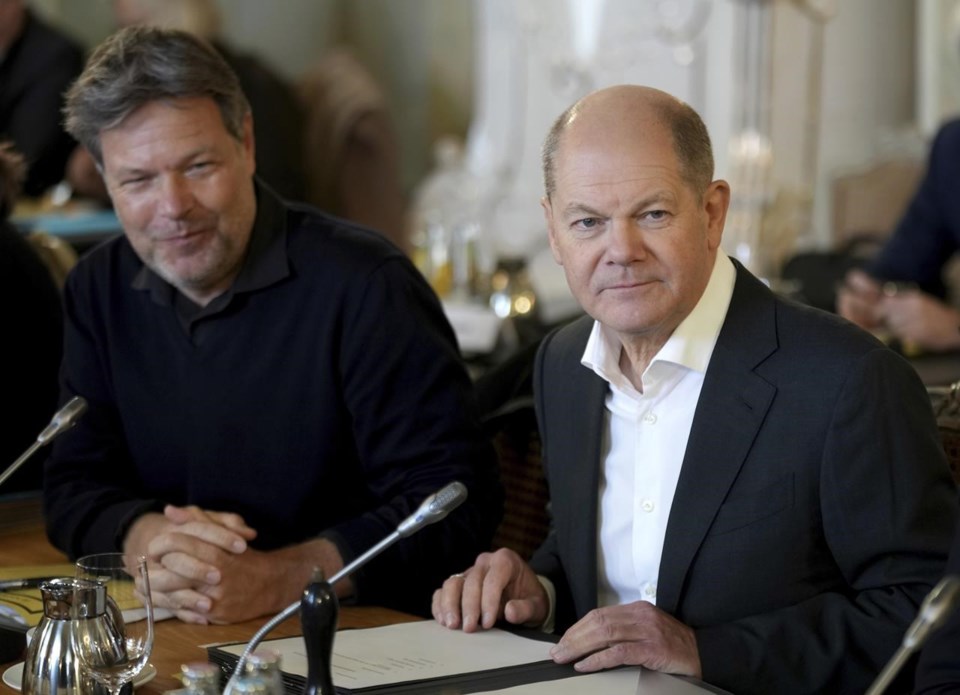BERLIN (AP) — German Chancellor Olaf Scholz said Monday that his country faces considerable challenges, but also opportunities, in the coming years as it seeks to transform toward a green economy with a shrinking workforce.
The 64-year-old said it will be necessary to tap into reserves in the labor market and attract skilled migrants if Germany is to achieve its goal of becoming climate neutral by 2045.
“There's a lot to do for which we need very many women and men who work here, but also those who come from other countries, so that all the work that needs to be done in Germany gets done,” he told reporters at the end of a two-day government retreat outside Berlin.
Scholz, a member of the center-left Social Democratic Party, said that due to demand for workers “Germany will leave the problem of joblessness behind in the coming years.”
Shifting away from planet-heating fossil fuels toward renewable power will be particularly difficult for Germany's energy-intensive manufacturing industry.
“Until 2030 we need to erect four to five new wind turbines every day and the equivalent of more than 40 soccer pitches of solar panels,” said Scholz.
Germany's Economy Ministry warned that failure to reduce emissions and curb climate change could cost the country dearly.
A report commissioned by the government and published Monday estimated that Germany has already suffered economic damage of at least 145 billion euros ($155 billion) between 2000 and 2021, more than half of that since 2018 alone.
“By the middle of the century researchers calculate that the extent of planetary warming will cause cumulative damage to the national economy of between 280 billion to 900 billion euros” due to heatwaves, floods, health impacts, ecosystem and biodiversity loss, the ministry said.
Germany's economy minister, Robert Habeck, said the deadly flooding which hit western Germany two years ago showed the danger posed to lives and livelihoods by natural disasters made more frequent by climate change.
At the same time, the investments required for the transformation of the economy should be seen as an opportunity for growth, he said. “This is a gigantic industry and jobs program."
Habeck noted that Germany has managed to wean itself off Russian energy supplies over the past year. By tapping new supplies and reducing consumption the country appears set to have more natural gas in its reserves by the end of the winter than it did at the same time last year, he said.
Frank Jordans, The Associated Press



